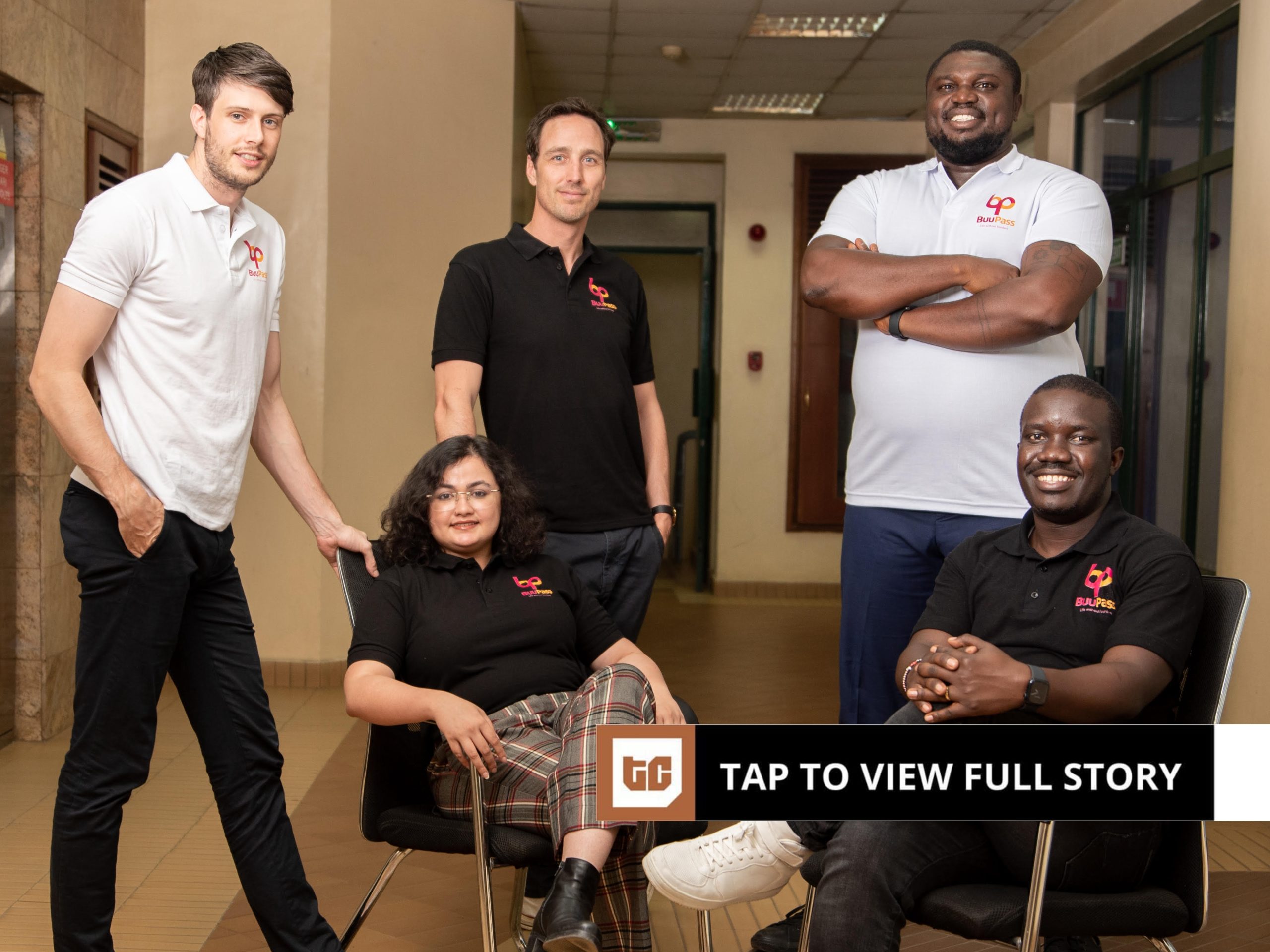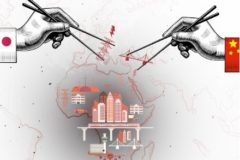

Good morning️ ☀️
TechCabal Insights has partnered with the Japan International Cooperation Agency (JICA) to release a report on the Nigerian startup scene.
The report covers the state of the Nigerian startup ecosystem by taking a bird’s eye view of the macroeconomic and regulatory events that continue to shape it. It provides a robust SWOT analysis of the tech landscape, the factors that can catalyse the growth of Nigerian startups, and sectors where innovation can drive this growth, among other vital information.
Get the actionable insights you need to navigate the Nigerian startup scene. Download your FREE report here.
In today’s edition
Swvl’s drives further into profitability
When it comes to profitability, it takes anywhere from 3–5 years for companies to attain it—or at least that’s what some experts say. In reality, very few companies actually attain profitability with just 18% of companies attaining profitability in three years, and 40% by Year 5. In fact, some of the world’s biggest companies including Boeing and Credit Suisse still struggle with profitability.
This is why Swvl’s sharp turn towards profitability is rather interesting.
Just 18 months ago, the Dubai-born mobility startup was facing the threat of being delisted from NASDAQ for failing to comply with listing rules. In H1 2022, it made $40.7 million in revenue but lost over $161.6 million. After its initial public offering (IPO) in April 2022, its shares dropped by 99%, and its valuation from $1.5 billion to just over $6 million. It also reversed a $40 million acquisition of Turkish startup Volt Lines as it struggled to find cash. It ended 2022 with a net loss of $123.6 million.
A year later though, the company’s fortune has changed as its financial report boasts a $3.1 net million profit. Swvl increased its gross profit more than eightfold to $4.1 million from $0.5 million in 2022. It also posted an operating profit of $12.1 million, compared to an operating loss of $80.2 million in 2022.
How did Swvl swivel around? Dig deeper here.
Read Moniepoint’s case study on family-owned businesses
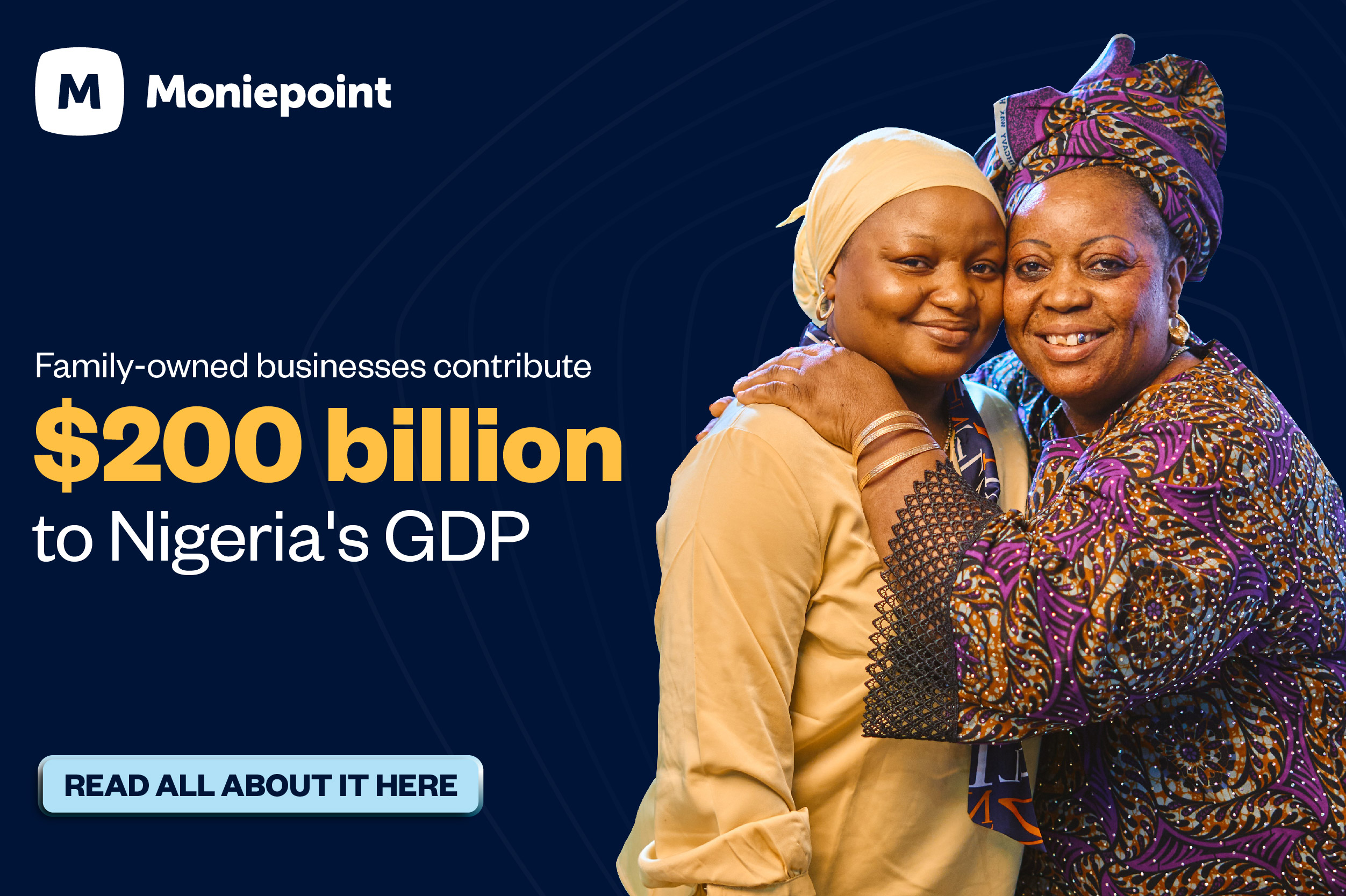
Family-owned businesses are everywhere, shaping our world in ways you might not expect. We’ve found some insights into how they work, and we’d love to share them with you. Dive in right away here.
FCMB seeks approval for ₦150 billion raise
Nigeria’s apex bank, the Central Bank of Nigeria (CBN), recently changed capital requirements for different bank tiers. Capital requirements are the minimum amount of money banks must have on hand.
Per the CBN, the new capital requirement—₦10 billion ($7.6 million) for smaller banks, to ₦500 billion ($380 million) for banks with international operations—aims to protect Nigeria’s economy from global shocks and help achieve President Tinubu’s goal of a trillion-dollar economy by 2030.
FMCB, a Nigerian tier-2 bank, is the latest bank in the country racing to meet the new requirements.
The bank has sought shareholder approval to raise ₦150 billion ($107.4 million). FCMB will raise new capital by issuing new ordinary shares, preference shares, convertible notes, bonds, and other instruments. FCMB, being a tier-2 bank, has a target of ₦200 billion ($143.2 million).
The bank also notes that it will explore other options to meet the capital requirements, including issuing shares to investors in the Nigerian and international capital market and increasing the company’s share capital “to an amount sufficient to enable it to meet the statutory minimum capital requirement as may be necessary.”
The big picture: FCMB is not alone in the search for new funds. Since the CBN announced the new capital requirement, four other banks—Access Bank, GT Bank, and First Bank—have been in the market for fresh funds.
This is not the first time that Nigeria’s apex bank has set new capital requirements. In 2005, the CBN upped the minimum capital requirement for banks from ₦2 billion to ₦25 billion, triggering mergers and acquisitions and reducing the number of banks to 25, down from 89. While the CBN has set a hard stop of April 30 for banks to announce fundraising plans, this report suggests that 17 of Nigeria’s 24 banks might not meet the new capital requirements.
Enjoy hassle-free transactions with Fincra
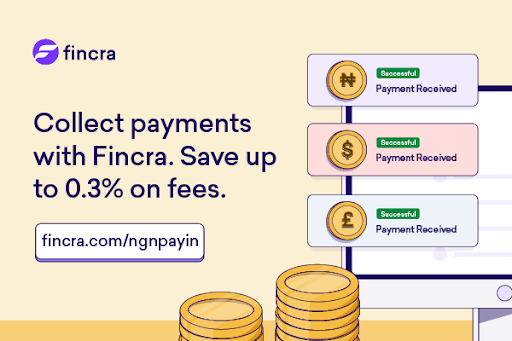
Collect payments without stress from your customers via bank transfer, cards, virtual accounts & mobile money. What’s more? You get to save money on fees when you use Fincra. Start now.
Telecom Namibia employs debt-collection agencies to pursue loan defaulters
In 2023, Kenya’s Hustler Fund reported that it had KES3 billion ($22.7 million) in defaulted loans. The government-owned project says it lent 20 million Kenyans about KES33 billion ($295 million), and while several Kenyans repaid their loans, almost a million of the borrowers—about 800,000 defaulted.
The Kenyan government’s solution to this debt problem is to block the defaulters from accessing any more loans, but over in Southern Africa, Namibia’s national telecoms service has found another way for its similar issue with debt collection agencies.
The news: Telecom Namibia, a government-owned telecommunications service provider is taking action to collect overdue payments from its customers with debt collection agencies. The telecoms company has customers with unpaid bills and is now partnering with three debt collection agencies—RedForce, Muadifam, and Revenue Solutions—to get its monies back.
It’s unclear, at this stage, how much borrowers owe the telecoms but it’s enough to warrant third-party agents. These agencies will be responsible for recovering outstanding money owed to Telecom Namibia, in respect of accounts that are overdue for recurring telecom charges and TN mobile data bundles.
Does the end justify the means? One of the agencies, RedForce, is a popular debt-collection agency for the Namibian government having reportedly recovered $1 billion for 10 local authorities since its establishment in 2014. It presently holds a contract with the City of Windhoek in Namibia, and has collected $300 million in municipal debt. RedForce is also infamous for its accused of harsh debt collection measures, and has been the subject of protests across Windhoek where citizens have urged the government to stop using RedForce’s services.
What will the agencies do? Accounts that are owing will be handed over to these agencies and may be suspended/or permanently disconnected. The telecom has urged customers whose accounts are handed over to liaise directly with these agencies for payment arrangements.
In its public notice, the company stated that “continued non-payment accounts may result in default listing with the Information Trust Corporation (ITC) Namibia.”
Access Bank records ₦159.3 billion profit in Q1 2024
Access Bank remains the reigning king.
Last year, Access Holdings Plc, the parent company of Nigeria’s largest bank by assets, went on a spending spree, acquiring different banks and stamping its foothold across the continent.The bank’s goal is to double the share of assets outside its home market by 2027. While it is on track to achieve this, it is not reneging on its lead in Nigeria.
How? According to the bank’s unaudited financial results for the first quarter, it recorded assets worth ₦32.6 trillion ($23 billion), maintaining its position as Nigeria’s largest bank by asset. Access Bank recorded ₦26.7 trillion ($19 billion) in assets last year in December, representing a 22% increase.
Access Bank’s profit for the period (Q1 2024) was ₦159.3 billion ($114 million), which represents a 122% increase year-on-year. The Bank’s revenue in the period under review was driven by an increase in net interest income, which surged from ₦95.2 billion ($68 million) to ₦275.7 billion ($197 million).
Zoom out: In March, Access Bank, with a presence in 22 countries including the UAE and UK, announced plans to raise $1.8 billion for expansion. This move came ahead of the Nigerian apex bank’s revision of capital requirements for banks.
Accept fast in-person payments, at scale
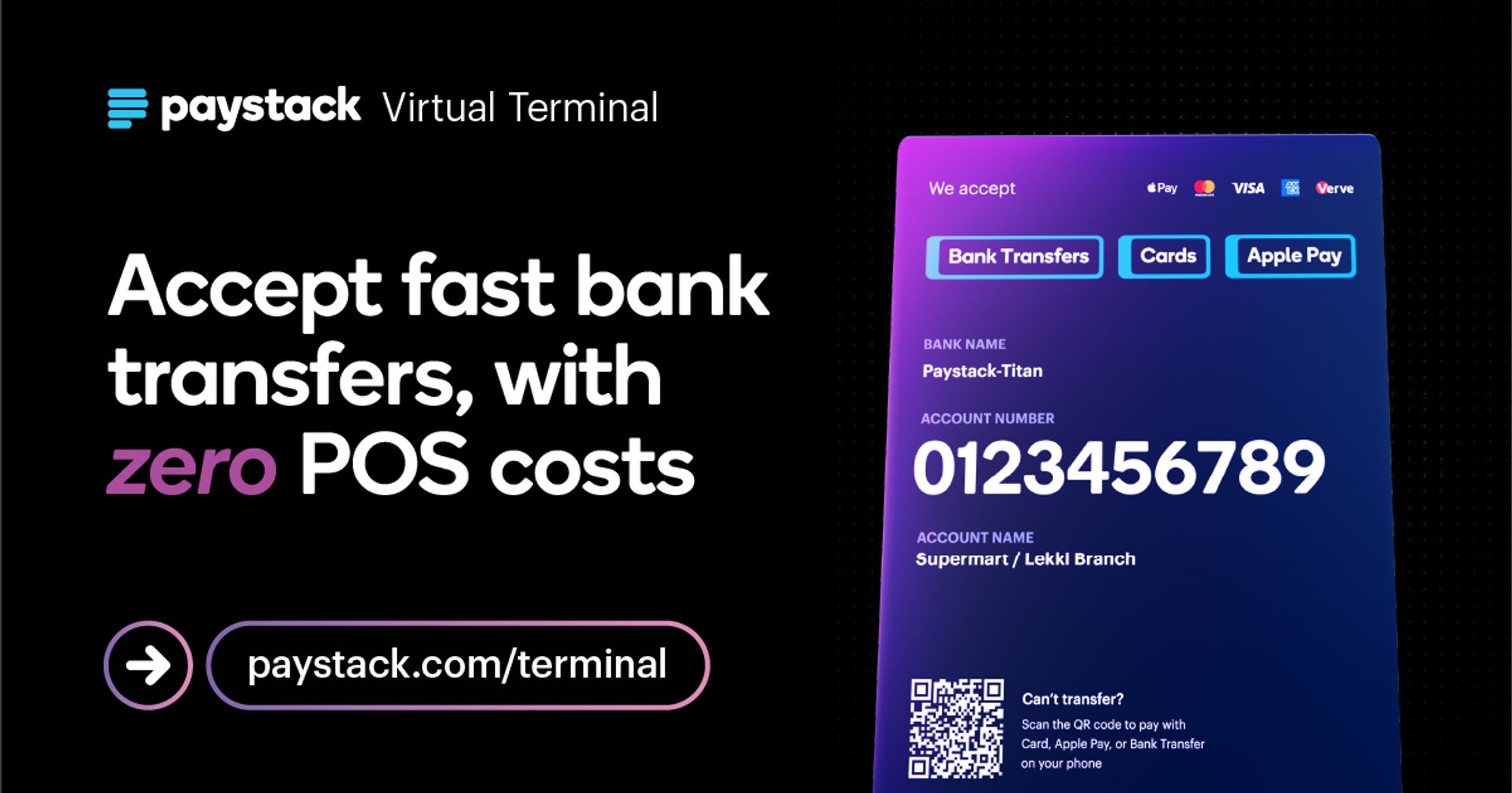
Spin up a sales force with dozens – even hundreds – of Virtual Terminal accounts in seconds, without the headache of managing physical hardware. Learn more →
VALR pursues licences in Mauritius and Dubai
VALR, South Africa’s largest cryptocurrency exchange, is looking to expand its services across the globe. The company acquired a licence to offer crypto assets in Poland in 2022 and has applied for crypto operating licenses in Dubai and Mauritius. Having secured initial approval from Dubai’s regulator VARA, the company is now pursuing a license in Mauritius.
Market domination and global ambition: “The intention here is to be able to provide products and services to a global audience that is continuously growing, the intention is to become a global player because we’re not satisfied with being the largest in Africa (by trading volume),” CEO Farzam Ehsani told Reuters.
The company says the licenses in Dubai and Mauritius will allow it to continue pursuing its expansion strategy. “We are open to pursuing global opportunities and will be exploring several markets outside SA in the near future,” Blake Player, head of growth, told TechCabal.
Established in 2018, VALR asserts that it provides services to more than 600,000 retail clients and over 1,000 institutional clients in South Africa and beyond.
In March 2022, VALR secured $50 million in funding through a Series B round led by Pantera Capital. This investment valued the company at $240 million and fueled its expansion plans across Africa and into emerging markets like India.
Regulatory challenges and strategic growth: Last week, South Africa’s Financial Sector Conduct Authority (FSCA) granted licenses to 75 crypto asset service providers, including VALR. This marked as a step towards making cryptocurrencies a more mainstream investment option and establishing a regulated environment for crypto users in the country.
Despite its growing licenses, VALR’s global expansion strategy has faced setbacks in the past. The exchange shut down operations in Zambia due to banking difficulties and had to delay its expansion into India, Kenya, and Nigeria due to regulatory challenges.
To compete with global cryptocurrency giants like Binance, VALR is expanding its offerings. While their South African license currently allows it to provide basic crypto trading and services, CEO Farzam Ehsani hints at plans, including “exploring insurance options”.
Attend GITEX Africa

GITEX Africa returns a second time on May 29–31, 2024, to Marrakech, Morocco, discussing ways to accelerate the continent’s digital health revolution. GITEX is the continent’s largest all-inclusive tech event renowned for uniting the brightest minds in the technology industry.
The World Wide Web3
Source:

|
Coin Name |
Current Value |
Day |
Month |
|---|---|---|---|
| $57,388 |
– 4.37% |
– 13.53% |
|
| $2,914 |
– 2.79% |
– 12.98% |
|
|
$0.77 |
– 2.50% |
+ 12.41% |
|
| $129.31 |
+ 2.57% |
– 29.39% |
* Data as of 06:20 AM WAT, May 2, 2024.
- The fourth edition of Pitch2Win is open for applications. Pitch2Win aims to connect visionary founders with potential investors, fostering growth, collaboration, and investment opportunities. The 3 Finalists will win a prize pot of $20,000. They will also receive an all-expense paid trip to the IVS2024 Kyoto Event, Japan’s largest startup conference. Apply by May 5, 2024.
- Applications are now open for the DAAD Leadership for Africa Master’s Scholarship Programme. The programme aims to support the academic qualification and advancement of young refugees and national scholars from Burundi, Kenya, Rwanda, South Sudan, and Uganda at higher education institutions in Germany. Applicants will get a chance to learn a German language course for 6 months before study begins, and a Tuition-free M.A. or M.Sc. degree programme at a public or state-recognized university in Germany starting September/October 2025.Apply by June 7, 2024.
Here’s what you should be looking at
Written by: Faith Omoniyi & Towobola Bamgbose
Edited by: Timi Odueso
Want more of TechCabal? Sign up for our insightful newsletters on the business and economy of tech in Africa.
- The Next Wave: futuristic analysis of the business of tech in Africa.
- Entering Tech: tech career insights and opportunities in your inbox every Wednesday at 3 PM WAT.
- In a Giffy: business decisions powered by data-driven insights and analysis you can trust.
- TC Scoops: breaking news from TechCabal
P:S If you’re often missing TC Daily in your inbox, check your Promotions folder and move any edition of TC Daily from “Promotions” to your “Main” or “Primary” folder and TC Daily will always come to you.













